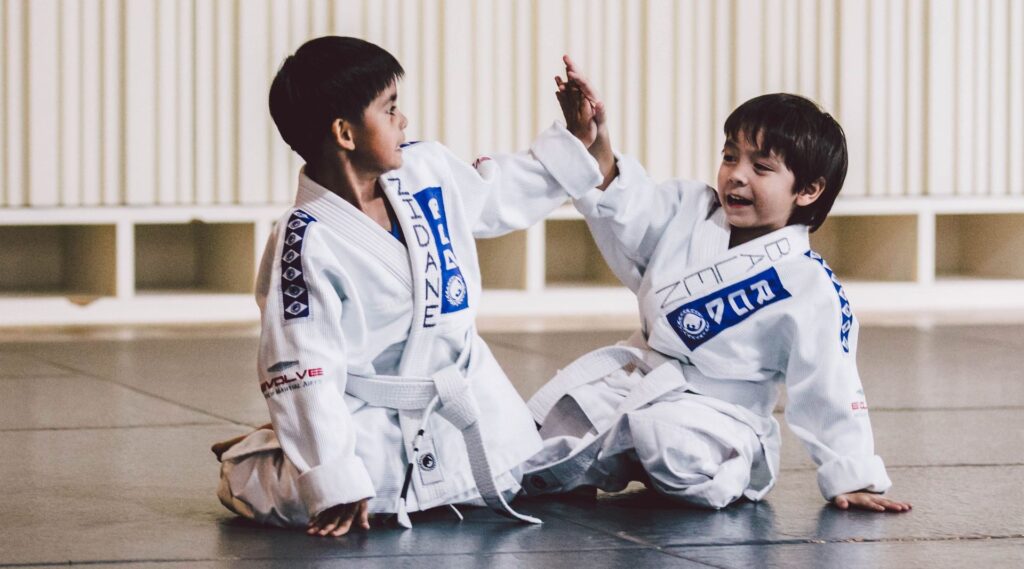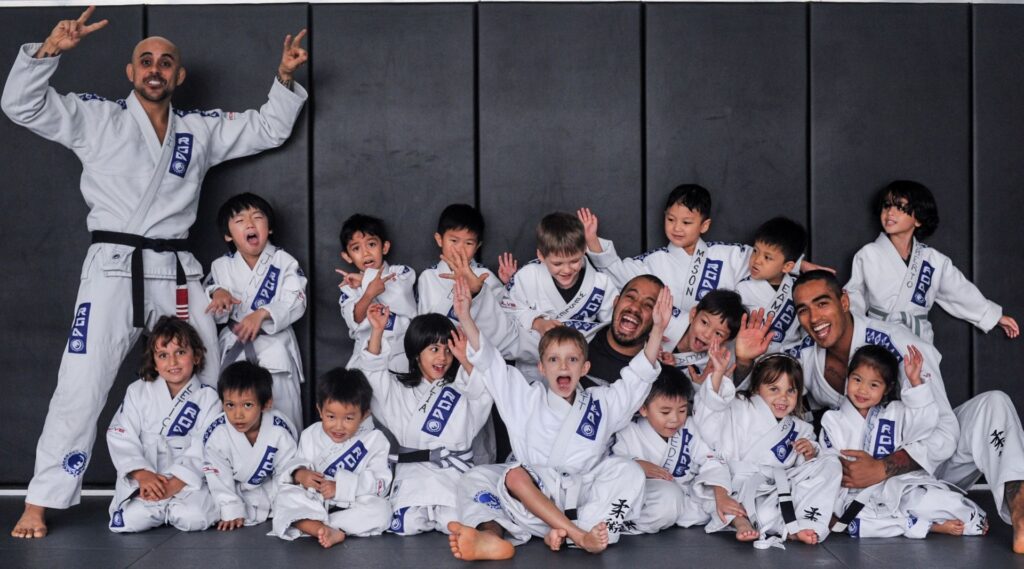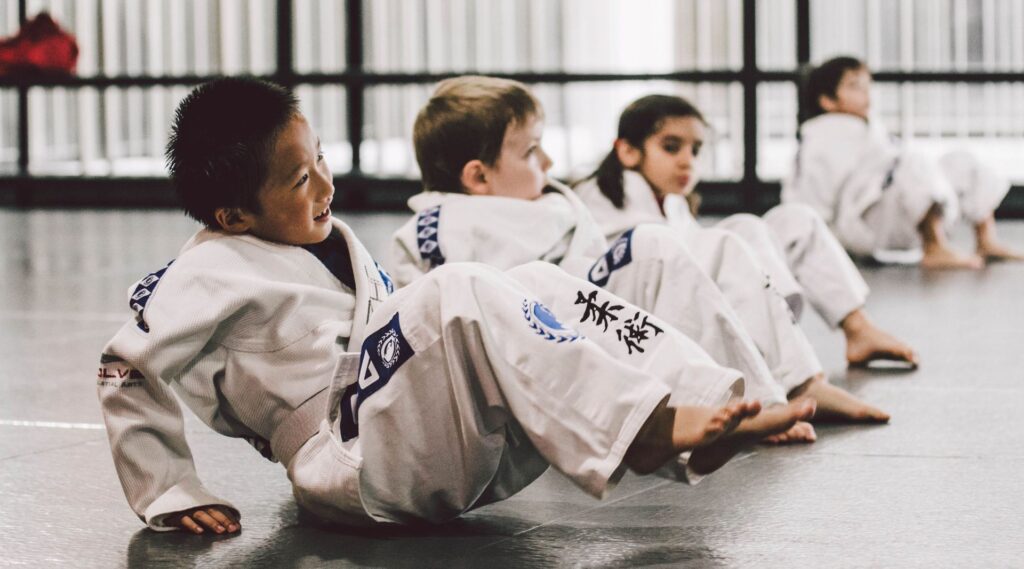Our children are always in need of proper guidance. One great lesson they need to learn, and one that will ultimately benefit them later on in life, is proper goal setting. Knowing how to set goals is important because setting goals is a key element of success. goal setting icebreakers
Whether in school as students, at the workplace as a member of the workforce, or in our personal lives, setting goals allows us to visualize a clear path to accomplishing our tasks and achieving desired results. Without goals, we are doing things blindly.
One of the lessons children’s martial arts classes teach is to set goals.
Through the ability to visualize what we want to achieve, understanding how to get from point A to point B, and realizing what we are capable of as human beings, martial arts allows us to get in touch with who we are and what we can do in this life.
This is especially important in children because they are at the stage when they begin developing the habits they will carry through adolescence and later on in their adult lives. Thankfully, martial arts can help our kids learn how to set goals for themselves.
Start them young. Introduce your kids to the joy of martial arts training. Today, Evolve Daily shares five ways martial arts helps kids become better at setting goals.
Goal Setting Icebreakers Through Martial Arts: How It Helps
1) It gives them the ability to visualize goals
Martial arts is very goal-oriented in nature. Practitioners train hard every day in order to hone techniques to perfection. By achieving certain tasks, students are awarded merit.
In martial arts such as Brazilian Jiu-Jitsu, for example, students are awarded colored belts as they progress through the stages of training. In Muay Thai, they go from beginner to intermediate to advanced, with each stage offering a new set of challenges and training styles. Each martial art has goals that need to be achieved.
By getting accustomed to knowing and understanding the goals that they strive to achieve, children can learn how to visualize goals inside and outside of the gym. Visualizing goals is the first step to accomplishing them.
2) It helps them appreciate the process

Goal setting icebreakers: The self-defense skills children learn will stick with them for life. | Photo: Evolve MMA
More than just achieving goals, in martial arts, it’s all about appreciating and trusting the process.
Martial arts teaches us that, it’s not just about getting from point A to point B, but how you traverse the journey is equally as important. Throughout training, children go from first learning and understanding the basics, before delving into advanced techniques and developing their own unique styles.
Though martial arts is goal-oriented, it is also heavily task-driven. By constant and daily practice, children learn what they need to do to become successful. This permeates into their personal lives outside of the gym as appreciating the process becomes second nature to them.
Children soon learn that martial arts, and all of life, is all about the journey more than it is about the destination.
3) It helps them understand their abilities
Another great benefit that martial arts empowers children with is the insight into their own capabilities. We as people often miscalculate ourselves. We often give in to self-doubt and second guess what we really want to achieve in life.
Through martial arts training, children are able to realize what they are capable of as human beings, both physically and mentally.
Martial arts unlocks the true human potential. It unleashes the greatness that is within us. Learning this valuable lesson while we are young will undoubtedly equip us with the tools we need to become successful in this life.
This is important because in this world the only limits that exist are the ones we set for ourselves. Children need that distinct self-confidence that they can do anything they set their mind to.
4) It teaches them the value of hard work

An exciting children’s BJJ class at Evolve MMA (Orchard Central) in Singapore. | Photo: Evolve MMA goal setting icebreakers
There is no replacement for hard work. You can have all the talent in the world, but without hard work, you won’t get very far. Hard work is the backbone of martial arts. Nothing in martial arts can be achieved without putting in work, and focusing on self-improvement.
Martial arts training is designed to push the human capacity to the limit. It’s meant to test our willpower above all. Through hard work, dedication, and perseverance, we can achieve many great things. This is a lesson that will someday prove invaluable for the children of today.
By practicing martial arts such as BJJ or Muay Thai, children can discover the value of hard work and that their efforts always work towards their benefit. As martial artists, we are taught to strive for daily self-improvement, to strive to be the best version of ourselves.
5) It helps them overcome fear

Goal setting icebreakers: The social skills children learn in their BJJ class help them to learn to fit in better in school. | Photo: Evolve MMA
One of the biggest problems everyone faces is fear. Oftentimes, we allow our fears to control us.
Maybe we’re afraid to leave our comfort zones, scared to fall flat on our faces and fail. It’s a natural reaction to be defensive and resist change, resist the call to step outside of our comfort zones and explore the possibilities.
Martial arts helps children understand that fear is not the enemy. More importantly, they learn how to control their fear.
Fear prevents people from trying new things, exploring new worlds, and making big decisions. Thankfully, our children don’t have to live their lives controlled by fear. Martial arts will give them the courage and confidence to overcome fear and triumph.
Courage is not the absence of fear. Courage is action in the presence of fear.
So what are you waiting for? Sign your child up for martial arts classes and see the results for yourself.
This post was first published on Evolve MMA and was republished on theAsianparent with permission.

Also read: 7 Ways to Develop Your Kid’s Character and Build Resilience
 Together Against RSV
Together Against RSV SG60
SG60 Pregnancy
Pregnancy Parenting
Parenting Child
Child Feeding & Nutrition
Feeding & Nutrition Education
Education Lifestyle
Lifestyle Events
Events Holiday Hub
Holiday Hub Aptamil
Aptamil TAP Recommends
TAP Recommends Shopping
Shopping Press Releases
Press Releases Project Sidekicks
Project Sidekicks Community
Community Advertise With Us
Advertise With Us Contact Us
Contact Us VIP
VIP Rewards
Rewards VIP Parents
VIP Parents
